By Stavri J. DAJO
The first part
The failed secret mission of the Albanian detective Koço Kazanxhi in Greece, his arrest and death sentence (1948-1951) –
According to the judicial fascicle
Historical framework-
Memorie.al / After the Second World War and the conspiratorial Churchill-Stalin meeting, in October 1944 in Moscow (which marked the division of the east-west influence zones) it was decided that Greece would move to the western orbit. The Greek Communist Party (PKG) did not agree with this decision of the Great Powers and tried to usurp power by force, without accepting the parliamentary order and free elections. Its violent reaction caused the bloody clashes of December 1944 that formally brought about the cease-fire moratorium or, in other words, the Varkiza Agreement (February 12, 1945), the terms of which were eventually violated by the warring parties. As a result, a devastating fratricidal war broke out in Greece, known as the Civil War (1946-1949), with thousands of victims on both sides, from the Greek Democratic Army (UDG), formed by the communists, and the Greek National Army (UKG). -government army-, but also from simple and defenseless civilians.
The national economy collapsed and the country was headed for a fatal collapse. Stalin, while he knew and universally declared his impartiality and condemned fratricidal violence, behind the scenes had organized a powerful and invisible machinery for the supply of arms, ammunition, food and clothing to the Greek guerrillas of the UDG who had risen to the top of the mountains and demanded the conquest of power by force.
Albania mostly (especially after the Stalin-Tito conflict, 1948), Bulgaria and Yugoslavia, turned into supply stations for the Greek insurgents, according to the Kremlin’s imperative. Even, according to some indicators, Albanian army teams took part together with UDG formations in the fighting along the border and inside the Greek territories. This endangered the national sovereignty of Albania and its territorial integrity, but Enver Hoxha could not oppose Stalin’s will.
In this situation, the State Security took the opportunity to send, infiltrated, camouflaged and with different legends and combinations compiled first by the Yugoslavs and then by the Soviets, – most often ordinary and ridiculous – dozens of scouts (Albanians or mixed formations with Greek communists freely entering and exiting the southern border) with secret missions for reconnaissance activity inside Greek territory, which were destined to fail miserably, since the Greek authorities of the pursuit with American organization, had accurate information about the intentions, movements and protagonists from different and accurate sources. Among the first scouts to go to Greece was the lieutenant of the State Security, Kosta (or Koço) Kazanxhi, in August 1948.
Who was the discoverer Kosta Kazanxhi?
On December 17, 1951, the Permanent Military Court of Athens sentenced to death the Albanian lieutenant of the Sigurimi, Kosta (or Koço or Konstantin) Dhimitër Kazanxhi, accused of espionage against Greece, who, two days after Christmas 1951, was executed. Arrested in the village of Kastori (Kastania) in the Peloponnese on October 6, 1949, in the operational area of the UKG, he was first sent to Tripoli (Peloponnese) for pre-investigation and then to Athens, taken under charges.
Who was Koço Kazanxhiu?
In his judicial fascicle, Koço Kazanxhiu had the following data: Born in Durrës, Albania on April 6, 1923, from a mother of Greek origin (according to his statement before the prosecution body) and an Albanian father (more precisely, of Vlach origin). In addition to Albanian, he also knew Italian, Vlach (the Armenian language), while he also communicated without difficulty in Greek (he could not write) and understood Slavic-Macedonian. His mother, Pandora, with the paternal surname Koxha (or Goxha), originated from the Monastery of what was then Serbia (North Macedonia today).
His father, Dhimitër Kazanxhi, worked in the Italian company “Singer” in Tirana since 1935, while his uncle, Sterjo Koxha, his mother’s brother, lived in Durrës and was a rich merchant of wood, with great possessions and authority in Durres. However, in 1938, when Kosta was only 15 years old, his father died and the whole family, moved to Tirana, returned to Durrës.
In 1941, he was a student at the Commercial School of Vlora, where Mihal Prifti (later Deputy Minister of Foreign Affairs) taught, from the village of Gjat in Gjirokastra, returned to Albania after completing his higher economic studies in Athens (he had lived there since childhood ), who barely spoke Albanian then, as Kosta Kazanxhi stated in the investigator. After two years, Kosta Kazanxhi stopped his studies and in 1943, after the capitulation of Italy, he joined the structures of the National Liberation Front.
In February 1945, he was demobilized and until October of the same year, he worked in an agricultural cooperative in Durrës, as financial director. In October 1945, he was appointed an officer in the Directorate of People’s Protection (formed on December 14, 1944) in the Durrës section, where he served until August 1946, when he was called to the Ministry of Internal Affairs (MIA) and transferred to the Directorate of State Security , which was formed on April 2, 1946, as a successor to the Directorate of People’s Protection. A few days later, on August 19, 1946, by order of the Minister of Defense, he was promoted to lieutenant.
It holds various titles, among which, by decree of the Presidium of the People’s Assembly no. 4061/ 27.09.1965 and the “Order of Bravery” posthumously, with the motivation “For a revolutionary stance before the investigative and judicial bodies of the Greek monarcho-fascists, for loyalty until death to the People’s Republic of Albania”. In his personal file, he was described as a man with resistance to difficulties and high honesty. In April 1946, when his transfer from Durrës to Tirana was decided, the head of the Security Branch of Durrës, Vilson Pecani, hoped for a quick evolution as the discoverer of Lieutenant Kosta Kazanxhi.
He was a member of the Albanian Communist Party (later ALP) since 1944. In the first conversations with Koci Xoxen (April 1946) Kazanxhiu was asked, because of his mother’s origin, if he knew Greek in order to undertake a secret mission discovery, within the aid operations of the eastern countries for the Greek communists of the UDG. “I curse the hour and the moment they found me, to carry out this mission”, declared Kazanxhi in Greece, a few days after his arrest, in October 1949, before the Greek military authorities.
How do you describe Albania before the prosecution?
Found under accusation and in complete isolation, because of the interest presented by the case of this whistleblower, a Greek journalist was allowed to communicate with him, and part of the investigative acts came to public light, causing a great echo and indignation for the conspiratorial attitude of Albania, in cooperation with other countries of the East, to the detriment of the national interests of Greece. Otherwise, in the letters he addressed to his family a few days before his execution (December 1951), found in Kalithea prison in Athens, Kazanxhiu reverses these initial statements – asserted in autumn 1949 – and leaves insinuations that; the initial assertions of the questionnaire were nothing more than the product of torturous methods of investigation.
However, in these statements, he described Enver Hoxha as a paid tool of the Kremlin, whom the British helped (or, at least, did not prevent) to rise to power, after the Permet Congress. His spur (of Enver Hoxha) as ordinary crime killers, old drunkards, incompetents, who, according to his depositions, did not drop a single rifle (Abaz Kupi, he says, was the only one who resisted the Italians, but was declared enemy), became holders of public services, or party officials. But Enver Hoxha as a baker, says Kazanxhiu, turned the page.
The slogans “Long live Churchill”! “Long live Roosevelt”! were gradually removed as well as the symbols of the allies and in their place, slogans such as: “Long live Stalin!” and “Long live Tito!”. Meanwhile, the party line was changed, the slogans used by communist propaganda and sensational journalistic headlines were also changed. Communist propaganda screamed that Anglo-American capitalists could not agree with the socialist ideas of democratic countries and coexist peacefully with the peoples of these countries.
The agricultural assets of the peasants were forcibly nationalized; the workshops, factories and production units of the craftsmen were nationalized, which were then given to a caste of politicians, who immediately got rich. The old owners were called to pay high taxes. The regime was despotic, tyrannical and dictatorial. Each peasant was entitled to 18 gr. bread per month; the rest should be given to the state. Whoever resisted was imprisoned. But the resistance was great, especially in the North.
Two high officials of the communist system, Mehmet Shehu and Nesti Kerenxhi, cruelly suppressed the anti-government movements, killing the protagonists, while those who succeeded were forced to flee. The victims of Enver Hoxha were not only his enemies and opponents, but also his friends of the ideal, those who made up the core of the “democracy of friends”. Koçi Xoxja, before whom we trembled because he ordered as and when he wanted the elimination of anyone who dared to oppose him, was one of Enver Hoxha’s first victims.
The Serbs, says Kazanxhiu, are the absolute owners of Albania; they do whatever they want after the Convention of July 9, 1946. The mineral wealth of the country goes entirely to Serbia. The state administration and the national wealth have been taken over by the Yugoslavs. A Yugoslav technician is rewarded with 15,000 lek per month, while for the same work; an Albanian technician is rewarded with 2,000 lek. Yugoslavs behave with brutality and arrogance. In our services, namely in the State Security, every day there were denunciations from Albanian citizens about the Yugoslav emissaries, who, among other things, got drunk, cursed and shouted that Albania would turn into the seventh republic of Yugoslavia.
Albanians hated them for this behavior, every day there were incidents, insults and public beatings between Albanians and Yugoslavs. But the communist propaganda hysteria praised them saying that Albania cannot live without Yugoslavia, which is the benefactor of our people. After the collapse of friendship with the Yugoslavs in one night, they were called “renegades” and “traitors”, while two days ago they were the “saviors” of Albania. The people were numb; even we Security employees did not know what position to take.
We were told that Tito was an agent of the Americans, and then the people found the courage to speak out against him. And while the situation was getting better, the Soviets came, who instead of the Yugoslavs usurped the offices, occupied the ministries, the General Staff of the army and the direction of the State Security. A kennel of teachers replaced the Serbs, and Russian was forced into the school instead of Serbian.
In April 1947, Kosta Kazanxhi was transferred to the army reconnaissance on the border with Greece (Korçë-Erseke) with a special mission of promoting aid with food and ammunition for the UDG, led by Nikos Zaharadhis and Markos Vafiadhis, who came from European countries. Eastern by order of Stalin. The mission was top secret because of UN commissions of inquiry monitoring the border.
On April 20, 1947, Kazanxhiu presented himself to the chief of staff of the Ministry of Internal Affairs, and within a few days he met a “fat and rather tall” Greek named Ilias, who spoke Greek well, but also knew Russian and Serbian. , who was a member of the KQ of PKG. Ilia commissioned Kazanxhiu to provide large reconnaissance maps of Greece, from those used by the Italians during the war. Within a few days, Kazanxhiu had provided such maps.
On May 3, 1947, he was ordered to prepare for a secret mission in the wider area of Korça, which was led by Major Myftar Tare, the head of the counter-intelligence service, under whose auspices the Greek relief machinery operated and a dense espionage network against Greece, as acknowledged in his memoirs by the later ambassador of Albania to Greece, Ksenofon Nushi (who worked in military intelligence in the 50s). In addition to Kazanxhiu, Tare himself, Ilia and Lieutenant Gaqo Mborja were also installed in Korça.
Kazanxhiu, because he knew the Greek language, was assigned the role of liaison. Large amounts of ammunition, food, and medical equipment, medicines came from Durrës, a large part of which was looted by the Greek guerrillas themselves during transport by vehicles or mules before reaching the destination. The supply point was Dardha e Korça, under the protection of storekeeper Ali Korbi together with a platoon of soldiers. The supply was carried out in complete secrecy, mostly at night. If any peasant caught the eye of the slightest suspicious movement of the army, he was arrested on the spot, imprisoned or exiled so that the secret would not get out.
Complete conspiracy. But, nevertheless, the secret had come out from the Albanian political fugitives in Greece and from the UDG deserters themselves, as well as from other sources of the services of the western countries. Kazanxhiu also monitored the entry into Albania of Greek children (a part kidnapped and raped by the UDG to become its future janissaries), women and the elderly, which constitutes one of the blackest stains of the Greek Civil War.
After the failed operations of the UDG in the spring of 1947 and summer of 1948, a large part of the fighters of the UDG but also prisoners of the UKG captured by the communists, entered Albania where they were treated aggressively and in severe conditions camping in Domosdovo near Prerenjas. Due to the miserable conditions in these camps, some Greek fighters killed two Albanian border soldiers with an ax and escaped to Greece from the concentration camps. The rebels in the camps were inspired by the Greek priests who had been forcibly taken and brought there as captives.
Fatal mission
On June 5, 1948, while serving at a border post in Korça, Kosta Kazanxhi was informed about his new secret mission in Greece and therefore had to appear urgently in Tirana. He would communicate with Giannis Ioannidis, PKG’s number two, who, since he was “sick”, was granted a comfortable villa in Tirana, where he lived as a pasha. In this villa, in the preparatory phase before departure, Kazanxhiu also met with other leaders of the PKG, such as Marko Vafiadhis (commander of the UDG) with the nickname “Trimi”.
Ioannidis told him bluntly and briefly that his mission would be a voyage by ship from Durrës to the Peloponnese, loaded with various supplies and military material, with a crew of five consisting of Greek guerrillas of the UDG- of. Memorie.al
*Doctor of Sciences of History of the University
“Aristotle” Thessaloniki
The next issue follows




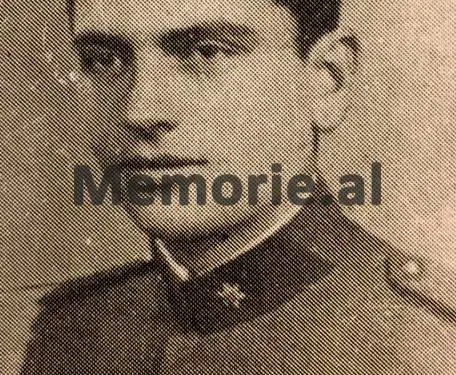
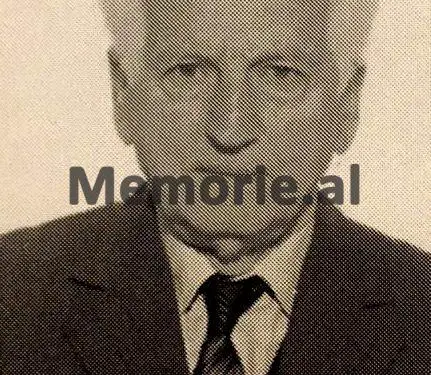
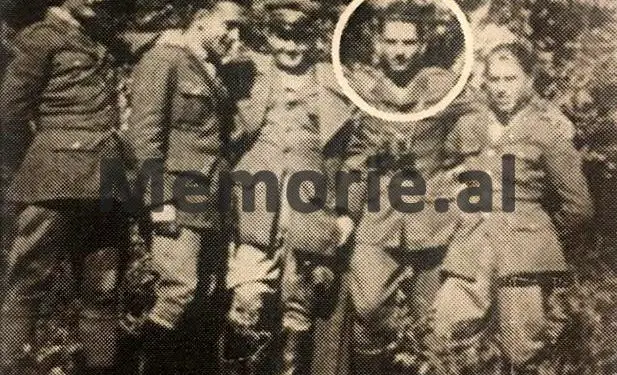
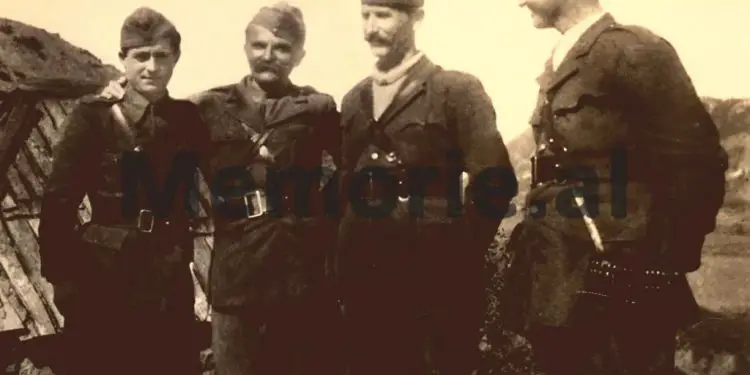
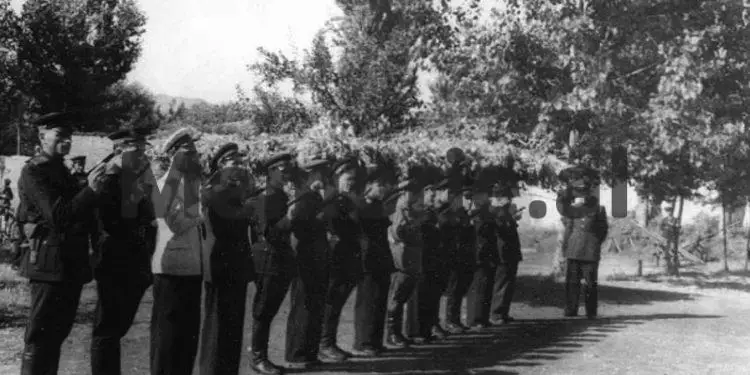
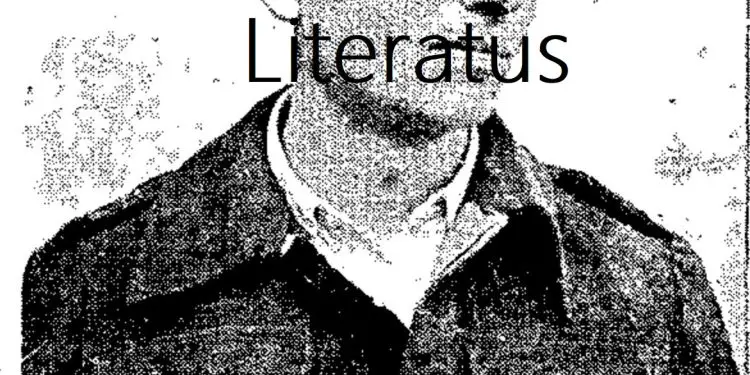
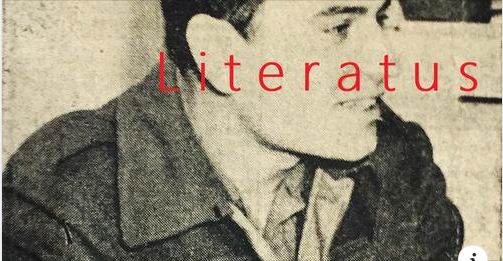
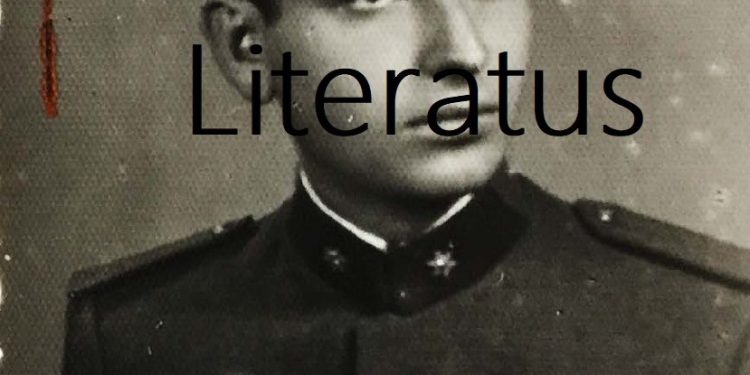
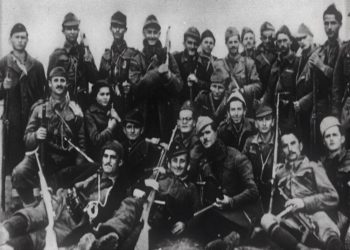
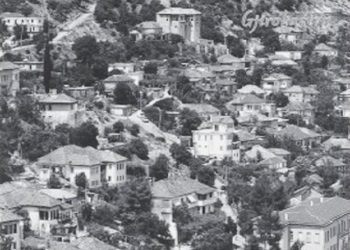
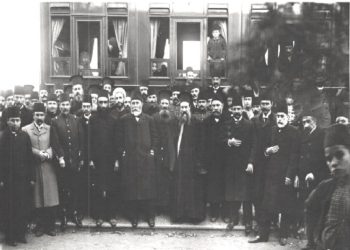
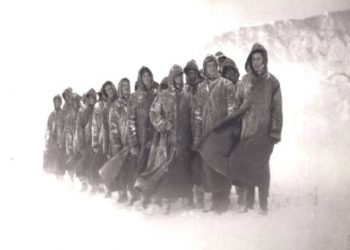

![“When the party secretary told me: ‘Why are you going to the city? Your comrades are harvesting wheat in the [voluntary] action, where the Party and Comrade Enver call them, while you wander about; they are fighting in Vietnam,’ I…”/ Reflections of the writer from Vlora.](https://memorie.al/wp-content/uploads/2025/06/admin-ajax-4-350x250.jpg)
